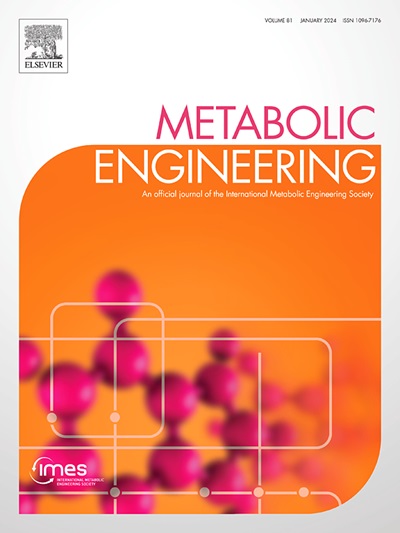Coordinated reprogramming of ATP metabolism strongly enhances adipic acid production in Escherichia coli
Soo Young Moon , Nan Yeong An , Seung Soo Oh , Ju Young Lee
Abstract
Maintaining a delicate balance of adenosine-5′-triphosphate (ATP) is crucial not only for optimal cellular functions but also for improved metabolite production, indicating the need for careful regulation of ATP demands in metabolic engineering. This study explored the modification of ATP metabolism to enhance adipic acid production in Escherichia coli, focusing on the reverse adipate degradation pathway (RADP), and ATP-consuming cycles were fine-tuned by controlling the overexpression of genes (panK and acs) to balance ATP consumption and adipic acid production. As a result, we successfully achieved a significant increase (19.5-fold) in adipic acid production, reaching 1093.11?mg/L in a shake flask, compared to that in the control strain (wild-type E. coli harboring the RADP). Our transcriptomic analysis indicated that modulation of ATP metabolism, along with a balanced supply of pathway precursors, affects metabolic fluxes, enhancing adipic acid biosynthesis in E. coli. This study suggests the potential of metabolic reprogramming of ATP to meet biosynthetic demands, which may improve the production of adipic acid and other ATP-derived chemicals.





